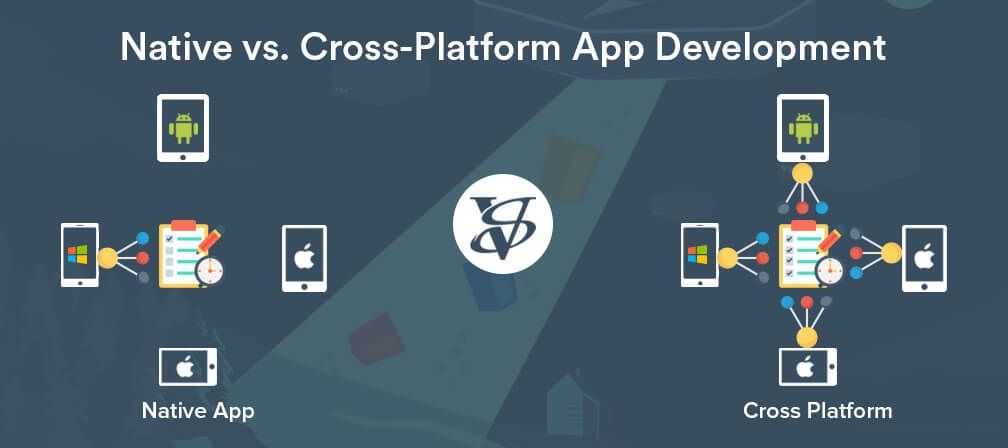



The Ultimate Guide to Building Exceptional Mobile Apps

Building an exceptional mobile app is a mix of creativity, technology, user-centric design, and continuous improvement. Whether you’re a seasoned developer or a newcomer to the world of app development, this guide will walk you through the essential steps for crafting an app that stands out in today’s competitive marketplace.
1. Planning and Research

The foundation of any successful app lies in thorough planning and research. Here’s what you need to focus on during the initial phase:
Define Your Goal: What is the purpose of your app? What problem does it solve or what value does it bring to users? Whether it’s for productivity, entertainment, or fitness, have a clear vision from the start.
Know Your Target Audience: Understand your users’ preferences, behaviors, and pain points. Market research helps you cater to the needs and expectations of your potential users.
Analyze Competitors: Study existing apps in the same niche. What do they do well? What can you improve? Identifying gaps in the market helps your app stand out.
Create a User Persona: Craft a detailed representation of your target user, including demographic info, challenges, and preferences. This will guide design and functionality decisions.
2. Choosing the Right Platform

Decide whether your app will be developed for iOS, Android, or both. This decision depends on your target audience, budget, and timeline:
Native Apps: Built specifically for one platform (iOS or Android), offering the best performance and user experience but more expensive and time-consuming to develop.
Cross-Platform Apps: Built for multiple platforms with a single codebase (using frameworks like Flutter, React Native, or Xamarin). These are cost-effective but may have performance limitations compared to native apps.
Hybrid Apps: Combine elements of native and web apps, providing some performance advantages while maintaining cost efficiency.
3. Designing an Intuitive User Experience (UX)

An exceptional app isn’t just about functionality – it’s about providing an enjoyable and seamless experience for your users. Focus on:
Simplicity and Clarity: Avoid clutter. Keep the interface simple and intuitive, with easy-to-navigate elements.
Responsive Design: Ensure your app performs well on different screen sizes and orientations, especially for Android, where multiple devices with varying specifications exist.
Consistency: Use consistent design patterns and UI elements across the app to make it easier for users to understand and navigate.
Accessibility: Make sure your app is usable for people with disabilities, including features like text-to-speech or contrast options.
4. Mobile App Development
Now that the groundwork is in place, you can begin the technical process of development. This is where coding happens, and it’s essential to follow best practices:
Choose the Right Tech Stack: Based on your platform (native or cross-platform), decide which programming languages, libraries, and frameworks to use. Common options include:
- iOS: Swift, Objective-C
- Android: Kotlin, Java
- Cross-Platform: Flutter, React Native, Xamarin
Backend Development: Most apps need a backend to store data and support functionality (e.g., user profiles, content, etc.). Popular backend technologies include Node.js, Ruby on Rails, and Python (Django, Flask).
API Integration: Most apps require third-party integrations like payment gateways (Stripe, PayPal), authentication (OAuth), and cloud services (AWS, Google Cloud). Make sure these APIs are secure and reliable.
Database Management: Use databases like Firebase, MongoDB, MySQL, or PostgreSQL to store user data efficiently. Consider whether your app needs offline support or data syncing.
5. Testing for Quality Assurance (QA)

Testing is crucial for identifying and fixing bugs before launching. Types of testing include:
Unit Testing: Test individual functions or methods to ensure they work as expected.
Integration Testing: Ensure different components of the app work together as intended.
UI/UX Testing: Check the app’s visual elements, user flow, and overall experience. Tools like Sketch or InVision can help with this phase.
Device Testing: Test on real devices to ensure compatibility across different screen sizes, hardware, and operating systems.
Performance Testing: Ensure the app’s performance, including load times, speed, and memory consumption. Tools like Apache JMeter or Firebase Performance Monitoring can help here.
6. Launching the App

Before launching, ensure everything is ready:
App Store Optimization (ASO): Optimize the app’s title, description, and keywords to help users find it. Use high-quality screenshots and a compelling app icon to increase downloads.
Create a Marketing Plan: Develop a strategy to promote your app via social media, content marketing, email campaigns, or even partnerships with influencers. Build anticipation with teasers before the launch.
Launch Beta Testing: You can also use beta testing platforms like TestFlight (iOS) or Google Play Console to gather early feedback from a limited group of users before the official release.
Submit to App Stores: Make sure your app meets all guidelines set by the App Store and Google Play Store before submission.
7. Post-Launch Support and Updates
Once your app is live, the work is far from over. Here’s what you should focus on:
-
Monitor Performance: Use analytics tools like Google Analytics for Firebase or Mixpanel to track user behavior and app performance.
-
Bug fixes and updates: Keep an eye out for bugs and address them promptly. Update your app regularly to fix issues, improve performance, and add new features.
-
User Feedback: Encourage users to leave reviews, and take their feedback seriously. Continuously improve the app based on user suggestions.
-
Marketing & Retention: Keep your users engaged with push notifications, in-app messages, or loyalty programs. Consider running promotions, referral programs, or offering new features to keep the user base growing.
8. Security Best Practices

Security is paramount in mobile app development. Protect both user data and your app’s integrity by following these best practices:
Data Encryption: Use encryption protocols like AES or RSA to protect sensitive data.
Authentication and Authorization: Use multi-factor authentication (MFA) and OAuth protocols to ensure secure login and authorization.
Secure APIs: Make sure that all third-party APIs are securely integrated and follow proper security standards.
App Permissions: Only request permissions that are absolutely necessary for your app. Avoid asking for excessive permissions, as it could raise red flags for users.
Payment Terms 50% Deposit:Bigger 25% Mid-Project Milestone 25% Upon Completion
Discounts and Special Offers
- Volume Discount: Available for clients with multiple game projects or ongoing development needs.
- Referral Discount: Get a 10% discount on your next project when you refer a new client to us.
Why Choose Our Pricing Plans?
- Transparent and Competitive Pricing: No hidden costs. We provide a clear, upfront price for all services.
- Tailored Packages: Choose the package that best fits your budget and game requirements, and feel free to customize with additional features.
- Scalable Solutions: Whether you need a simple game or a full-scale production, we offer scalable pricing to meet your needs.
Get Started Today!
For a custom quote or further details on our pricing, feel free to contact us! Our team will be happy to help you choose the best solution for your Android game development project.
Customer Reviews
At [androiddevelopr.com], we take great pride in the work we do and the relationships we build with our clients. Here’s what some of our satisfied customers have to say about their experience with our Android game development services
Why Clients Love Us:
- Creativity & Innovation: We’re passionate about turning ideas into immersive experiences.
- Transparent Communication: We keep our clients informed at every step of the development process.
- Timely Delivery: We pride ourselves on delivering high-quality games on time and within budget.
- Ongoing Support: We don’t just build games; we ensure their long-term success with continuous support and updates.